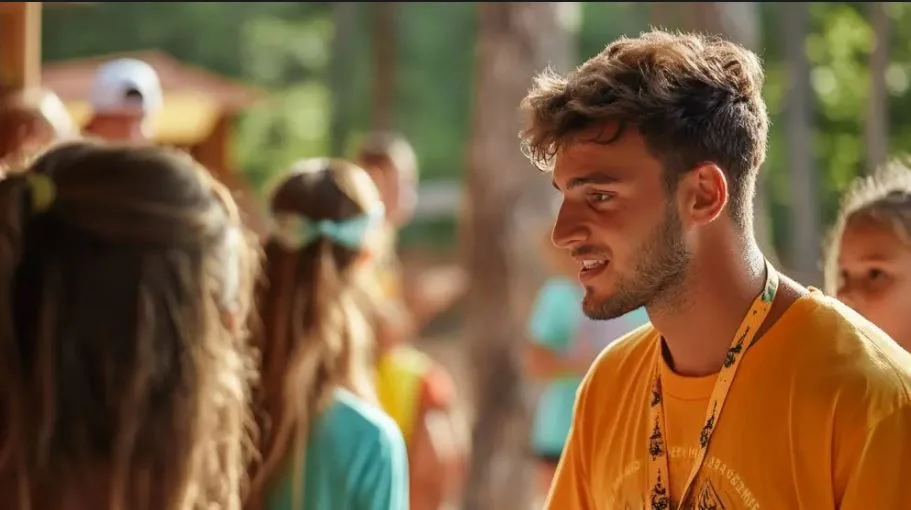The era of warp-speed transmission of information and global interconnectivity presents a world where political literacy has never been more pressing among the youth. This is the generation for which, at the age of 18 to 20 years, the chatter of political information, opinion, and decision-making can almost reach cacophonous levels in setting one’s path. Kirill Yurovskiy, a youth expert, holds that we have to stand ourselves at an angle and ask whether they are really ready. Let me take you into the world of political literacy to find out how we can make this new generation informed and active citizens.
The Political Literacy Gap: A Silent Crisis
Imagine election day. Sarah is 19, standing in the voting booth with her hand over the ballot, having no idea which way to go. She recognizes a few of the names; however, regarding the policies and implications of the choices she makes, she is at a loss. She is not alone, for there is a tremendous amount of young adults out there who find themselves in very similar situations, so removed from the political process that presumes governance over their very lives.
Recent studies have pointed out that only 24 percent of the youth aged between 18 and 20 years are sure of their knowledge about political systems and current events. The knowledge gap restricts them from making effective decisions and further reduces their civic involvement. The result? A whole generation of democrats is lost to the country.
Breaking Down the Barriers: Why Political Literacy Matters
So, why do we care about political literacy among young adults? Precisely because the very reason underlying the base of our society- from the quality of our education and healthcare to the air we breathe, to available opportunities, are all designed through the political decisions made. It means that by adding wherewithal to understand and participate in such decisions for the young adults, we are not just preparing them for the voting booth but enabling them with a voice to share what kind of world they want to live in.
Take, for example, Jake, a 20-year-old university student whose heart burns with issues of climate change. Having taken part in a political literacy workshop, he is aware of the policy going around environmental issues and equally knows how he can express his concerns to the local representatives. This is a testimony to the transformative power of political knowledge.
Knowledge of Politics: Building Blocks
Political literacy doesn’t equate to learning the facts or espousing an ideology, but rather developing a set of competencies and habits for interacting critically with the world of politics. The active ingredients would include:
- Systems and Structures Formulated: The general process through which bills become laws, the various branches of government, and what each of those branches do provide sound knowledge necessary for political systems. The youth therefore appreciate the interconnection between governance and decision-making.
- Critical Thinking and Media Literacy: Critical thinking in source and claim verification has become highly important during times of ‘fake news’ and the explosion of information. Teaching them how to question, verify, and analyze information empowers them toward well-rounded opinion-building.
- Civic Engagement Skills: Knowledge is just the beginning. Young adults need to know how to take that knowledge and apply it, whether through voting, involvement in local government, or activism for issues about which they are passionate.
- Global Awareness: Politics does not stop at the borders of a nation. Understanding international relations and global issues forms a backdrop that helps put local politics into context, enabling one to view the world as an integrated global system.
- Ethical Decision-Making: Political literacy is not all facts; it’s a question of values. It concerns the encouragement of young adults to reflect upon their own beliefs and consider the ethical implications of political decisions so vital in the development of informed citizens.
Innovative Forms of Political Education
Dusty textbooks and dry lectures are a thing of the past. In an effort to grab the attention of young adults, today’s political literacy initiatives are innovative, interactive, and thus less predictable. Among others, they have started to include digital platforms and gamification.
Digital Platforms and Gamification
Now, enter “CitizenQuest,” a brand-new, fully immersed mobile app that’s about to get the world chattering about politics. From participating in virtual local council meetings to attending international summits, this gamified portal will challenge users through key virtual political scenarios. Players earn points both for making informed choices within the app and for completing civic engagement challenges in their real-world communities. Having been downloaded over 500,000 times by 18- to 20-year-olds, CitizenQuest is proving to the world that civic education can actually be fun and effective.
Peer-to-Peer Learning Networks
YPN is revolutionizing the way young adults get involved in politics. This is one grassroots movement where groups of peers meet up, discuss current affairs, debate policies, and share resources. The uniqueness in this setting of YPN is that diversity of views crowds every meet-up, with a population of all walks of life and with different political leanings, so as to consider one another.
Immersive Experiences
Imagine being a senator for a day. Well, that’s just what the “Capitol Immersion Program” does, putting groups of young adults through the most realistic simulation in learning about the process of legislation. Participants draft bills, negotiate with lobby groups, and experience the pressures of public office. The result? A deep, experiential understanding of how government works.
Challenges and Opportunities
While gains are being made, there are still significant challenges to political literacy within the young adult population. Misinformation and political polarization have created barriers to engagement, as has a general feeling of disillusion. Yet, in these same challenges come opportunities for innovation and growth.
This could be done by embedding political literacy within existing structures of education, through various blogs and journals. These aspects are only now beginning to be developed at schools and universities, allowing civic education to be embedded into each curriculum. A biology class may review policy implications of genetic research, or a course of literature work may review political contexts.
The Road Ahead: Call to Action
It follows that promoting political literacy in the 18 to 20-year-old group is not only highly desirable but an absolute functional prerequisite if our democratic system is going to stay healthy. Yet, this is not a task that can be left to educators and policymakers by families, communities, and importantly young adults themselves. Here follows a set of concrete steps we can all take:

- Encourage Conversation: Engage in open and respectful political discussion at home and within social networks.
- Be a Role Model: Demonstrate to young adults that civic engagement is a lifelong endeavor.
- Advocate for Programs: Support policies and organizations dedicated to improving civic learning among youth.
- Utilize Digital Tools: Utilize digital tools and platforms through which political learning can be accessible, easy, and relevant.
- Engagement Celebration: Let them know their steps towards political literacy and engagement mean something and should be recognized and celebrated.
A Vision for Tomorrow
Imagine what it would be like to live in a world where every young adult entered that voting booth with confidence, where political discussions were sophisticated and informed, and where civic involvement was the rule rather than the exception. It’s not utopian speculation but an attainable reality if we are committed to developing political literacy in our youth.
